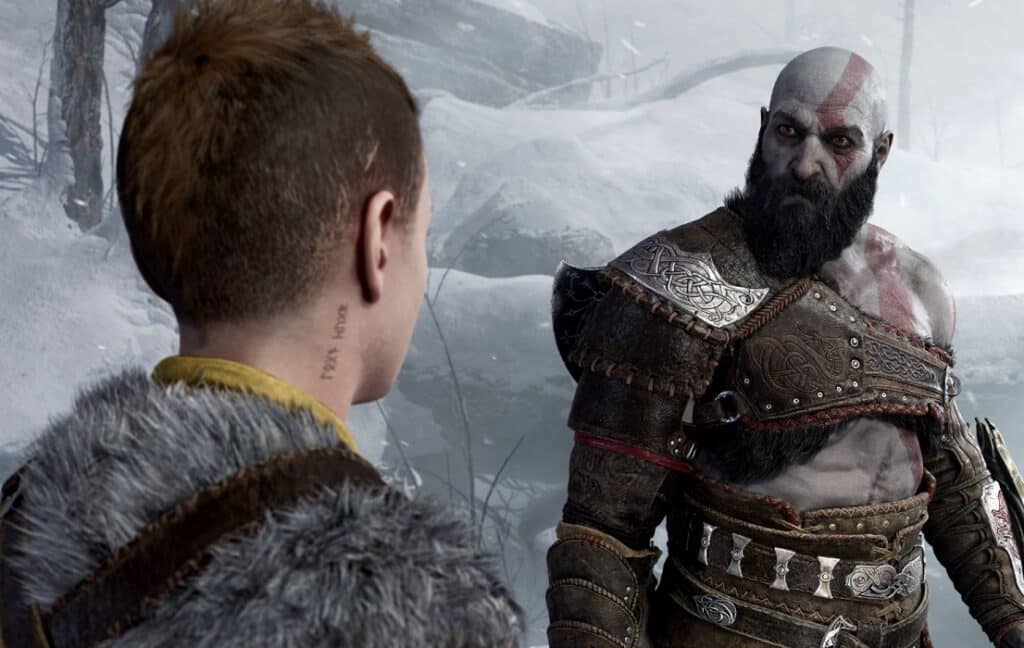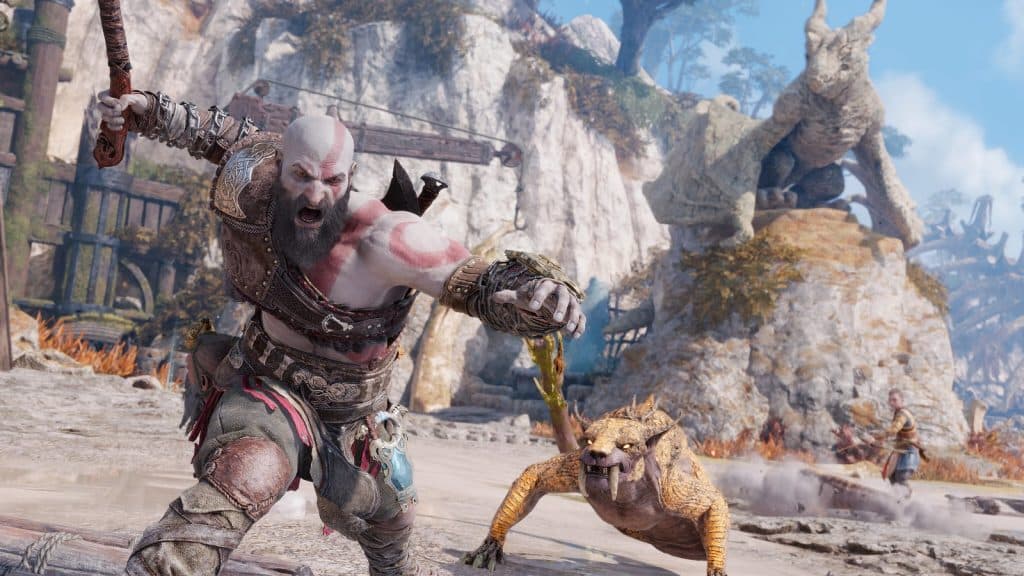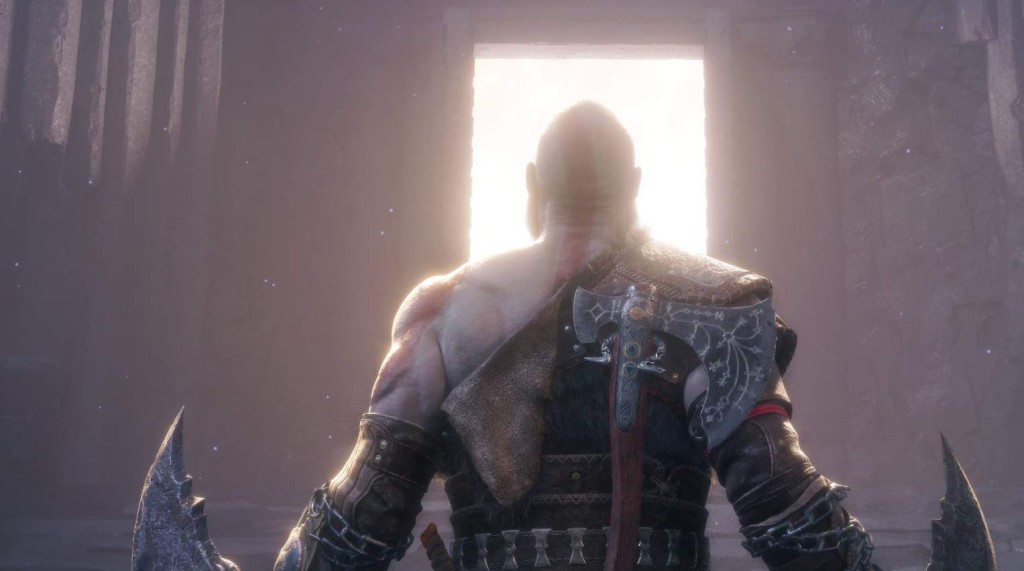In God of War Ragnarök, main protagonist Kratos was supposed to have a different fate than the one they finally implemented in the final version.
God of War Ragnarok Early Drafts Had TLOU2 “Joel” Vibes
Narrative Director Matt Sophos recently spoke with YouTuber MinnMax to discuss the ending of God of War 2018 where Kratos sees a mural revealing his death in the hands of the thunder god Thor. At that time, it was greatly speculated that Kratos would die in the next game and that would have greatly changed the story moving forward.
Thankfully in God of War Ragnarök, that “bad ending” did not happen at all as Kratos averted that death. Sophos was asked if there were really plans to actually kill the god killer off.
“There was the earliest, earliest draft of an outline that we had come up with, that we took to [director Eric Williams],” Sophos said. “Kratos died in the Thor fight at the very beginning of the game.”
Kratos Back in Hell, Again
Sophos then revealed that after Kratos’ supposed death, he would have dropped to Hell, just like in the past God of War games. It was not going to be a permanent death because Atreus will be coming back for him and pulling him out, again just like in the past games but with the help of his son this time.
Also, there is going to be a time jump for this, which was 20 years have passed and Atreus has grown up. Glad the team did not follow that route because this would have been horrible.
Final Choice Was Right Choice
In the end, Williams did not want to go down that direction, which Sophos says to be the right choice.
“Eric was like, ‘I don’t want to do that, Kratos has died and come back from it too many times, and it’ll feel a little bit too ‘oh, you said he was gonna die and oh, you just killed him but he came right back’’,” he recalled.
“The hook, the emotion, wasn’t really going to be there, and he was absolutely right, and so that’s why it didn’t last very long.”
Fate Does Not Dictate Ones Ending
Sophos also said that the game’s current ending helps carry a message to players. Kratos is alive at the end of the story, which meant any predictions or fortune-telling will not seal the fate of anyone as it can change.
“As we were developing the story, we knew we wanted it to be about letting go and changing,” he explained. “Knowing that Norse mythology is all about fate and prophecy and everything, and we wanted to say ‘that’s bullshit’, you know?
“Nothing is written that can’t be unwritten, as long as you’re willing to make changes in your life then you’re not bound to fate. And so when we landed on that, when we know that was the story we wanted to tell, we knew that Kratos couldn’t die.
“Because then it would be like, ‘well, are we just going to say that Kratos couldn’t change?’ And that would suck.”
We’re glad that the first draft didn’t go as planned. They instead delivered the most dramatic and heart-felt ending of the God of War series. Good on them.







